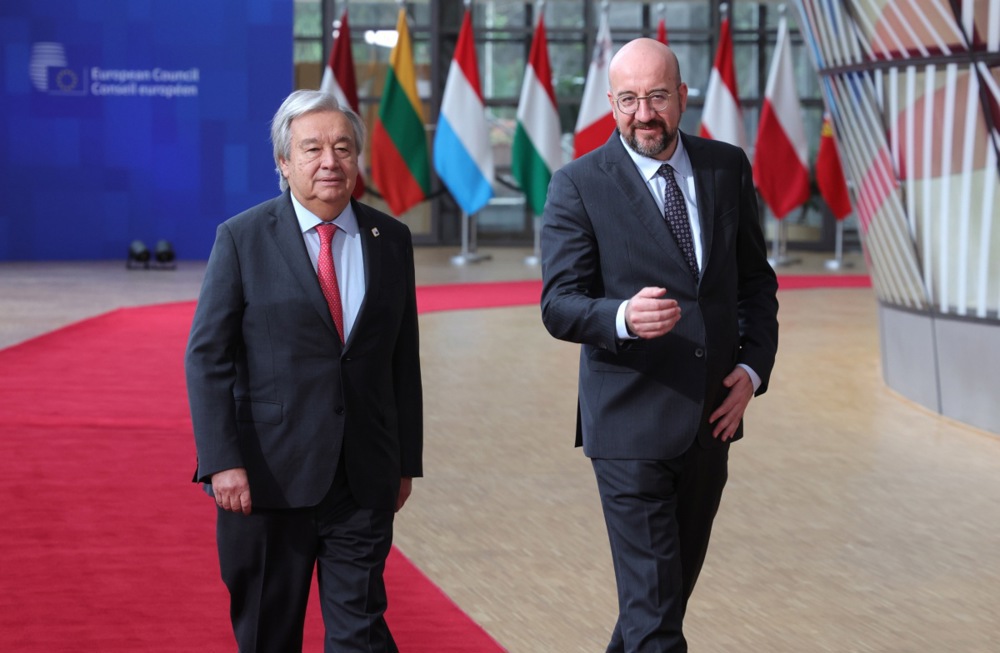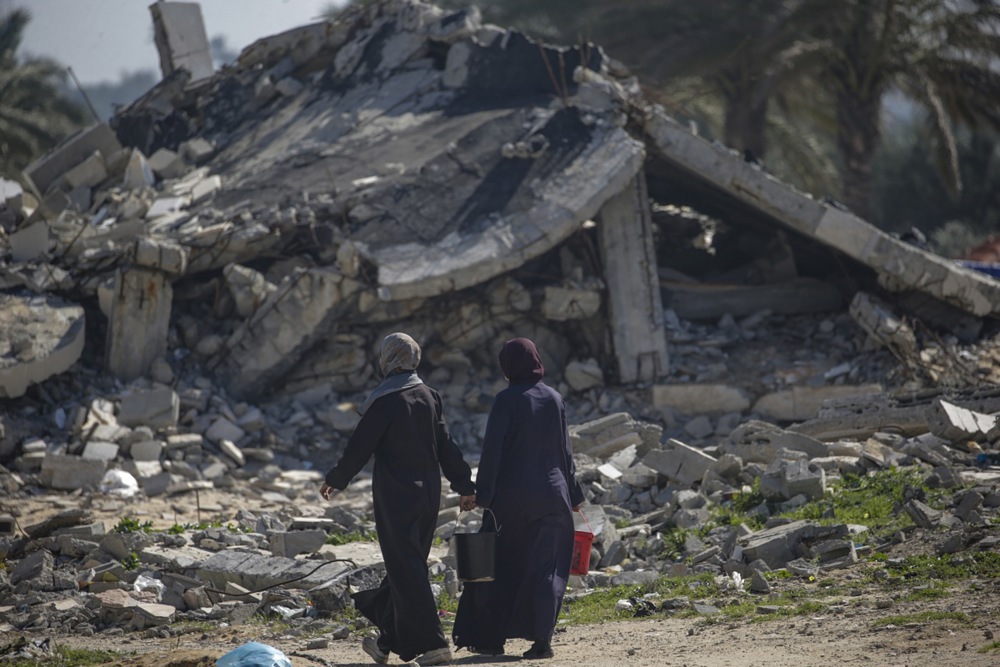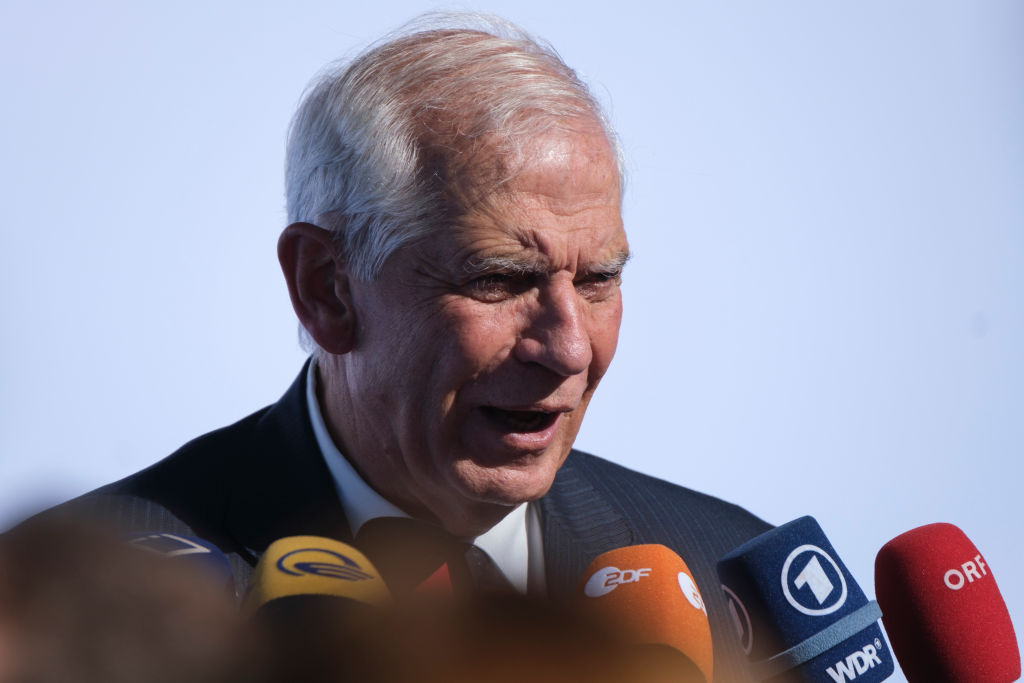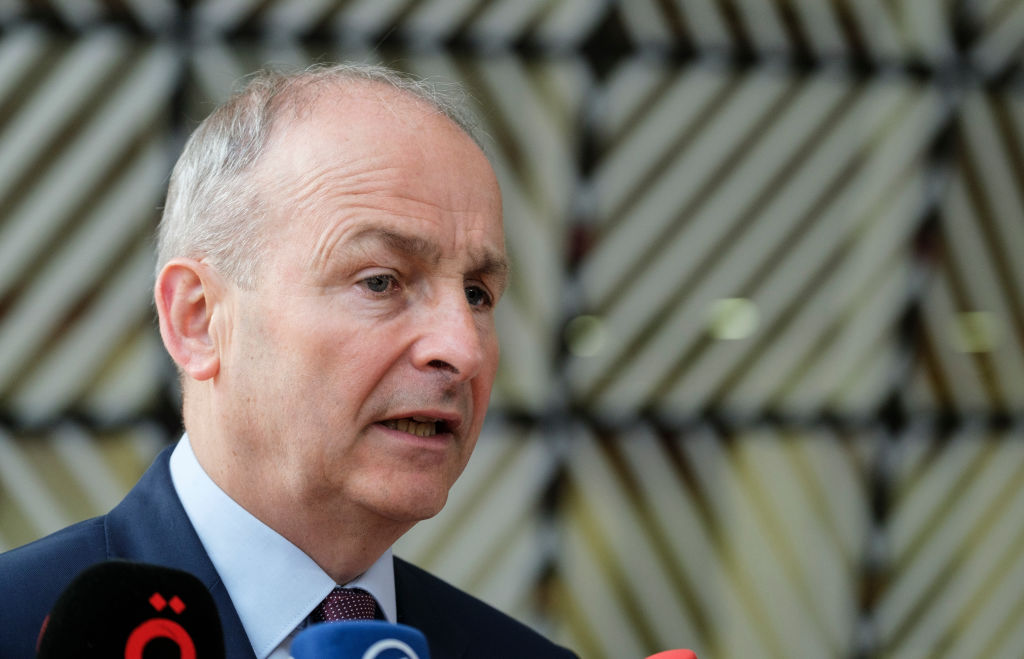The Prime Ministers of Spain and Ireland have met to discuss plans on how to get European Union Member States to officially recognise Palestine.
Spanish leader Pedro Sánchez travelled to Dublin on April 12, to meet Ireland’s newly installed Taoiseach (Prime Minister) Simon Harris.
At the core of the talks is the creation of a consortium of EU nations, seemingly helmed by Ireland and Spain, who will together officially recognise Palestine in the coming weeks.
Both Belgium and Malta are already reported to be on board with the plan, with both also said to be trying to recruit Norway, Portugal and Slovenia for the mass recognition bid.
“Be in no doubt, recognition of a Palestinian State will happen,” Micheál Martin, Ireland’s Deputy Prime Minister said while announcing part of the plan on April 9.
“For the past six months I have maintained ongoing discussions with ministerial colleagues in other countries about how a joint formal recognition of Palestinian statehood could be a catalyst to help the people of Gaza and the West Bank and in furthering an Arab-led peace initiative.
“We have agreed that the undermining of the Oslo Accords and, therefore, the agreement to create two states has reached a point where the accords’ approach of recognition after a final agreement is not credible or tenable any longer.”
Sánchez has suggested that formal recognition for the disputed territory will likely come in July.
The Spanish Government is making its support of Palestine known ahead of the European Parliament elections with Prime Minister Pedro Sánchez telling journalists his country plans to officially recognise the State of Palestine “before the summer”. https://t.co/UPD6HgpWkB
— Brussels Signal (@brusselssignal) April 2, 2024
The scheme to get a consortium of EU countries to soon recognise the Palestinian State comes amid heightened tensions between Israel and certain European nations.
In the wake of Hamas’ attack on Israel in October last year, a number of EU countries found themselves in conflict with Jerusalem over the militarised response to the threat posed by Palestinian terrorists.
Spain and Ireland, both traditional allies of Palestine, have become increasingly hawkish on Israel over the past few months.
“We are very, very clear that the response from Israel is now disproportionate and that it needs to stop,” Harris said during a trip to Brussels on April 11, before demanding that the administration in Israel led by Prime Minister Benjamin Netanyahu cease its military actions in the region “immediately”.
Jersusalem quickly fired back at Harris, denouncing him for failing to mention Hamas’ role in the ongoing conflict.
“After the worst massacre of Jews since the Holocaust … there are those in Ireland who persist on being on the wrong side of history,” the country’s foreign ministry said, accusing Ireland of trying to “award prizes” to terrorism.
When quizzed on the statements, Harris brushed off the claims before accusing Israel of trying to “muddy the waters”.
“Ireland, and myself as Taoiseach, will not be in any way distracted by any such comments from the Israeli government,” he said.
By contrast, much of the European Commission has placed itself firmly on Israel’s side in the conflict, with the body’s president, Ursula von der Leyen frequently voicing support from the country, despite internal opposition.
The EC is far from unified on the issue, with its foreign affairs chief, Josep Borrell, even accusing Israel of “financing” Hamas in order to undermine other political entities in the region.
LEAK: UNRWA admits ‘munitions’ were cached in its Gaza facilities
Brussels Signal has received a leaked document that indicates UNRWA – the United Nations Relief and Works Agency for Palestine Refugees in the Near East – fears “munitions” have been stored on its premises in Gaza… pic.twitter.com/EQJgzBqVlH
— Brussels Signal (@brusselssignal) March 7, 2024





